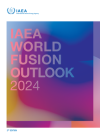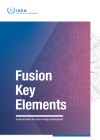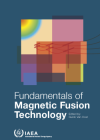Key work areas of this Section include, among others, the utilization of particle accelerators, applications of research reactors, nuclear instrumentation, and nuclear fusion research and technology. The Section's activities are part of the IAEA’s nuclear power, fuel cycle and nuclear science programme.
Physics Section
Supporting Member States with advanced nuclear science and technology
The Section assists Member States in promoting products and services accelerators and research reactors can provide and in developing utilization strategies that contribute to their sustainable operation. The Section supports facilitated access to accelerators and research reactors, in particular, to IAEA Member States without such facilities.
In the area of nuclear instrumentation, the Physics Section helps IAEA Member States select, operate and maintain the instruments appropriate to their nuclear activities. The Section maintains the Nuclear Science and Instrumentation Laboratory located in Seibersdorf, which supports Member States and their laboratories through training, research and analytical services.
Fusion energy for the future
Scientists around the world are working on the creation of energy from controlled nuclear fusion. The Physics Section assists IAEA Member States with the exchange and building of scientific and technical knowledge in this field, with the goal to generate a scientific basis for the technology to be eventually used in the design and building of future fusion power plants. This knowledge spans a wide range of topics, including plasma physics, materials research and various technologies. The IAEA cooperates in this area with the ITER International Fusion Energy Organization, an institution created in October 2007 to build the world's largest magnetic fusion experimental device in south of France.








